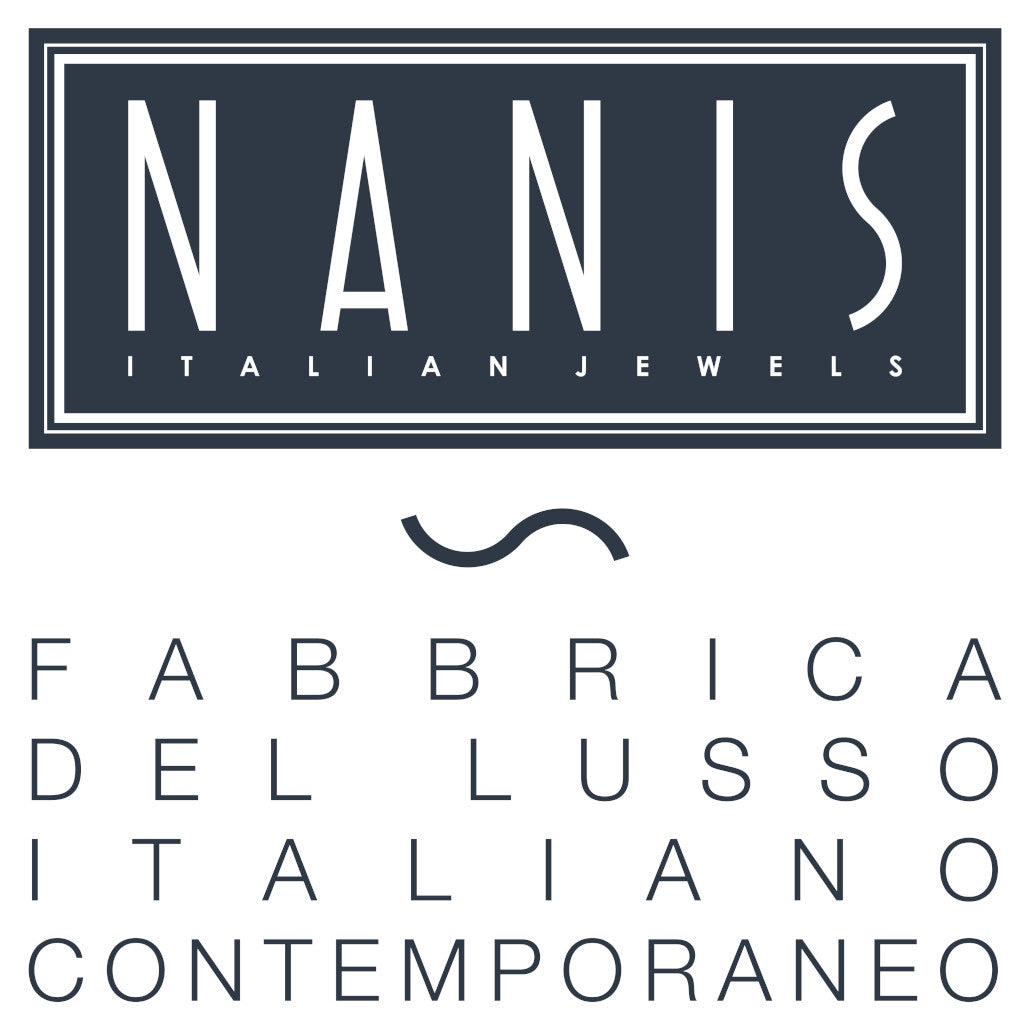Ode to boredom
Shape changing charms, bracelets that become necklaces, earrings that evolve according to the outfit, the mood or the occasion. Jewelry that amazes. NANIS jewelry are an antidote to banality and boredom.
One of Nanis masterpieces, called TRASFORMISTA, manages to blend luxury, elegance and adaptability. High example of technical brilliance, thanks to a simple button created especially for this 18 kt jewel, it can be transformed from a bracelet to a necklace. Just a light touch and everything changes, everything is transformed.
Few things characterize Nanis jewelry as much as the ability to amaze through change. Shape changing charms, bracelets that become necklaces, earrings that evolve according to the outfit, the mood or the occasion. Jewelry that amazes. Antidotes to banality and boredom. A jewel that manages to reinvent itself in our hands, that leaves us stunned, surprised. And that's not easy in a society like ours, where we are often left with the feeling that we have already seen everything.
A Nanis jewel never bores
Boredom is an emotion that is impossible to quell. It is the combination of feeling trapped, inertia and indifference: there is a vague sense in the air of wanting something to change, but we cannot say exactly what.
We pick up a book, but immediately leave it. We yawn, we let ourselves fall on the sofa with our gaze lost in emptiness.
We wander from room to room in search of some kind of distraction - but nothing entices us.
Boredom is a feeling that we think is very modern, but that does not mean life in the past never seemed repetitive and uninteresting. Pliny, writer, naturalist, philosopher and even governor in ancient Rome, claimed that many 'overburdened' Roman citizens committed suicide by drinking poison because of their 'tedious life”. Apparently. And evidence for this obnoxious annoyance with life remains in the Italian word 'noia', which through the Provençal enoja derives from the late Latin inodiare, i.e. 'to have in hatred'.
In fifteenth-century England, to feel irked (which we can translate as 'irritated' or 'bored') was an unpleasant combination of tiredness and disgust, the kind you feel when you are seated at dinner next to a dull person with no possibility of changing seats, or are forced to follow an incomprehensible lecture.
But it was in 1853 that the word boredom, as we understand it today, first appeared. Boredom, from the French verb bourrer, meaning to fill or satiate. This link between boredom and filling was the consequence of a rapidly changing relationship with time: pre-industrial societies had not made a precise distinction between work and domestic chores, but the rapid expansion of factories and offices within cities from the late 18th century onwards created a new way of dividing up the days, ushering in the concept of 'free time'. Soon, leisure time was seen by the middle class as a time for enjoyment and self-improvement. A lucrative entertainment industry, including circuses, scientific lectures and theatrical performances, rushed to satisfy this growing demand for leisure and enlightenment, and a new tourism industry arose to cater for the middle-class double excitement for consumerism and bizarre novelties.
In this context, finding oneself with nothing to do, being trapped in the company of tedious people, feeling unable to be interested, attentive or useful, was a mark of one's inadequacy. Doctors of the period even discussed the unpleasant health implications of boredom (from alcoholism, to onanism, to oversleeping). Politicians considered boredom a social plague. Feminist activists and novelists emphasised the deleterious effects of boredom on middle-class women. Charles Dickens called it 'the chronic disease of modern life', while later George Eliot warned in his books that this malaise, being bored to death, could have unforeseen consequences for others, not only for women. Bored as hothouse flowers 'to look as pretty as possible and to endure boredom without complaining', boredom could turn into poisonous plants.
Today, in theory, we should be free from boredom. With the constant stimuli of technology, with the celebration of smart working, in a world where there is no longer a difference between working time and free time, stress is our enemy rather than boredom. We get bored doing all sorts of things sometimes. Even at a party, or while shopping. You can get bored on holiday.
That's why Nanis jewelry, precious works of art made in Italy, are rare even in this, in their inexhaustible ability to amaze. A glance at their jewelry online store is enough to realize that design, creativity and the skillful use of ancient goldsmith's techniques make these jewels always different and unique.
Yet this almost Victorian fear of being bored is still with us, reformulated according to our times. The controversial diagnosis of Attention Deficit Hyperactivity Disorder, ADHD, applied on a growing number of children and adults especially in the United States have created a whole new category of people who are considered neurologically prone to boredom, their low dopamine levels making them restless, agitated and easily distracted with consequences on everyday life.
This double moral and medical panic about boredom can come at a price. Turn off your smartphone, and you may feel yourself slipping - through irritable boredom - into that state of listlessness that gives rise to daydreaming. Allow yourself to feel creeping disinterest, and you may find the motivation you need to change your situation.
Is this perhaps where the genius of some creations is born? In bored afternoons?
Perhaps, as anthropologist Ralph Linton has argued, "the human capacity to be bored, whether social needs or natural, lies at the root of human cultural progress".
So happy boredom to all, sure that a Nanis Italian jewel will always leave you excited and full of wonder.








